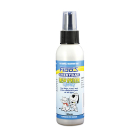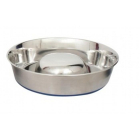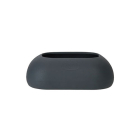
Summer is the perfect time to play outside with our dogs. The sun is shining, and the outdoors is calling - long walks in the park, hiking, beach days, or family vacations. What's not to love?! However, as the temperature rises, keep the following safety concerns in mind and follow our tips for summer dog safety. Your pet will stay happy and healthy during the hot summer months if you follow these tips.
Help Them Beat The Heat
- In hot weather, keep your dog inside where there is air conditioning or in a shady area.
- Because of their ability to trap heat, doghouses aren't good summer shelters.
- For your dog to cool off, fill a child-size wading pool with fresh water.
- On a hot day, never leave your dog in a closed vehicle. In just 20 minutes, a car can reach 100 degrees.
- Water should be kept cool and fresh at all times.
- On extremely hot days, do not exercise your dog vigorously. Walk early in the morning or late at night when the sun is less intense.
- You should not expose your dog to hot asphalt or sand for an extended period of time; it can burn his paws.
Summer Health Tips for Dogs
- It is especially important to keep your dog's vaccinations up-to-date during the summer months since dogs are more likely to spend time outdoors and come into contact with other animals.
- Keep dogs away from toxic plants and flowers, as well as lawns that have been chemically treated or fertilized for 24 hours.
- Make sure your dog is well brushed, clean, and free of mats.
- Ensure your dog's flea and tick, worms, and heartworm preventatives are up to date. Other parasites to keep in mind are ear mites and mosquitos.

Taking Your Dog to the Beach
- Make sure your dog has a shady place to rest, such as a beach tent or a beach pen.
- Make sure there is plenty of fresh water available.
- Make sure he doesn't get sunburned. Short-haired dogs, those with white fur, and those with pink skin are more likely to get sunburned. Apply sunscreen to your dog's ears, nose, and coat before taking him outside during the day.
- Lifeguards can provide information on the conditions of the water. A dog can easily be infected with sea lice or stung by a jellyfish.
- Keep an eye on his activities. Exercise on the sand is strenuous. It is possible for a dog that is out of shape to pull a tendon or ligament, and running on wet sand can cause blisters on his paw pads.
- Seawater can make your dog sick; don't let him drink it.
- At the end of the day, rinse him off. Your dog's coat can be damaged by salt and other minerals in ocean water.
- Be sure to check local ordinances before you go. Some beaches don't allow dogs, and some restrict their stay.
Water Safety For Dogs
- Swimming is a great activity for your dog. There are dogs who are natural swimmers, and there are others who won't even touch the water. Do not force your dog into the water. Use common sense and allow your dog in dangerous water conditions.
- Don't let your dog overdo it; swimming is hard work, and he may tire easily. Be careful of strong tides when swimming in the ocean.
- Never leave your dog unattended in the water.
- There are lifevests designed for dogs if you are worried about their swimming strength or simply want to spend more time in the water. It will help them stay afloat and swim faster - some dogs even just like to float.





